Relation to Human Governments
by Bruce Daugherty
Conscious of being citizens of Christ’s kingdom, members of Churches of Christ in the first half of the twentieth century were divided concerning their relationship to the governments of this world. To determine the theological stance regarding their relationship to human governments, this section of the study will examine Leader articles arguing for and against a Christian’s participation in civil governments, and it will examine national events as reported in the Leader which effectively demonstrated convictions of those differing views of government.
To understand the different positions, it is necessary to go back to David Lipscomb. Lipscomb viewed human governments as organized rebellion to God’s governing through his kingdom. (Lipscomb, 8-9). Christians were to exercise “passive submission” to human governments as they paid taxes and were obedient to laws not in conflict with God’s will. But because human governments were institutions which rejected God’s will, Christians were not participate in them: not to vote, hold office or political appointment, and never to take up arms in support or in rebellion to human governments. This view worked well for the “mental isolation” of the post Civil war South, but as America moved from a rural agrarian economy to an urban industrialized one with increased government regulation of industry, Christians were increasingly accepting a different view of government. (West, n.p.).
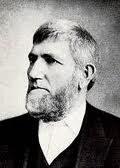
David Lipscomb
In contrast to Lipscomb, Isaac Errett and John Rowe indicated that another view of government was held among churches in the North.(Errett, 300 and J. F. Rowe, 316). The presidential campaign of James A. Garfield in 1880 highlighted these differences. In contrast to Lipscomb, Errett saw the election as a golden opportunity for “Christian statesmanship.” John Rowe, while not as enthusiastic as Errett, upheld a Christian’s right to vote and be involved in politics.
How did the Leader editor/writers view their relationship to the government? As would be expected, Flavil Hall, a son of the South and a former Lipscomb student, led the way in articles promoting Lipscomb’s view of government. Hall affirmed, “The human governments were ordained of God because of sin and crime in the world (Rom. 13). Had all mankind been subject to the rulership of Jehovah such governments would have never been a necessity.” Hall then declared, "The Christian’s duty toward his earthly rulers is to obey them in so far as can be done in harmony with the will of him 'who speaks from heaven.' There is no other duty toward human government prescribed for the Christian in the New Testament." (Hall, Apr. 25, 1916, 6).
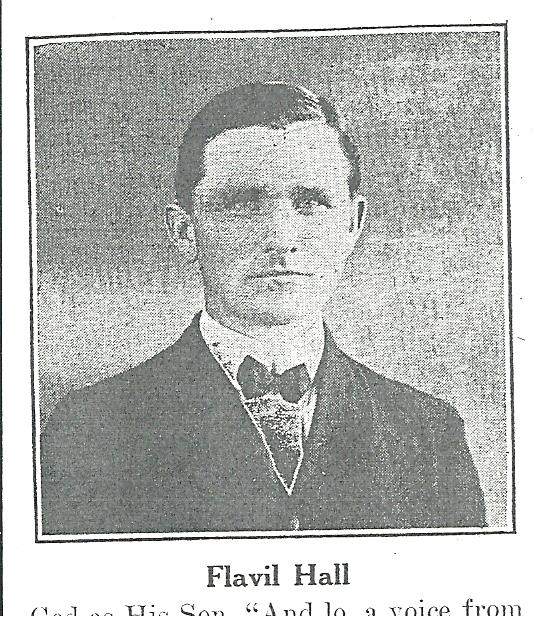
In another article, Hall praised David Lipscomb for his grasp of Scripture and then invited readers to consider where their loyalties lay. "Very few professing Christians know what it really means to be a citizen of the kingdom of Christ, because they have never learned the teaching of the Scriptures as given by Bro. Lipscomb in his book entitled, “Civil Government,” . . . Any Christian reading this book carefully will get a new vision of the divine government and will better understand his relation to human government, . . ." (Hall, Nov. 27, 1917, 6). Hall explained, "The duty of rulers in civil government is to punish evil doers, “to bear the sword,”; and Paul calls this taking revenge (Rom. 13:1-3). But in this connection the apostle tells some Christians not to do this. “Dearly beloved, avenge not yourselves”(12:19). Why should Christians not see that the ruler in human government has a prerogative that a Christian has not, and which the Holy Spirit tells him not to take, but which he must take if he enters the office of sheriff, etc.?" (Ibid.).
In 1927, Hall expressed his disappointment with the change in the Gospel Advocate regarding participation in government. He said that the current editor: ". . . now says Christians can go all the gates of participation in and administering the affairs of worldly, civil government - holding office, making laws, executing them and punishing criminals, even putting them to death, if this be the verdict of the court.” (Hall, Bewitched, 5). To Hall this was a repudiation of the principles which once guided the Advocate. In effect, “David and Elisha” had been “cast overboard.” Hall rejected the argument that sub-mission to “the powers that be” enjoined full participation in earthly governments. "All that Christians do in relation to the church, the family and civil government must be done in the name of Christ, as citizens of his kingdom. All other relationships must be subordinate to that of citizenship in Christ’s kingdom. Christians can not do things as participants in earthly governments that they can not do as citizens of Christ’s kingdom, i.e., in his name." (Ibid.).
Ira Moore’s brother, C. D., spoke of the two governments to which Christians had a debt. Christians owed Caesar taxes and continual prayers “that we may be duly protected from wars, and that we may be allowed to live our Christ-like peaceable life day by day.” (C. D. Moore, 3). But Christians owed their bodies and spirits to the Lord who had bought them. To Caesar belonged the carnal sword for keeping peace and law and protecting Christians. The only sword given to Christians was the “sword of the Spirit.” Christians were not to be enlisted in Caesar’s army nor to fight in Caesar’s wars. Their battle was a spiritual battle.
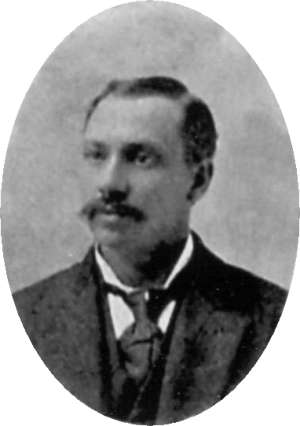
The Presidential candidacy in 1928 of Al Smith, a Catholic favoring repeal of Prohibition, and a Tammany Hall political machine representative, aroused many Leader writers to urge Christians to overcome their reluctance to participate in the election process.* Ira Moore declared: "Political governments and conditions have been and can be a help or a hindrance to Christianity, and Christians, since the privilege of having a voice in the government is given them by the government, and even invited and urged to speak their sentiments at the ballot box, should not, either by their silence nor by their vote, assist in making their government an enemy to Christianity and the full exercise of Christian rights, privileges, and duties. Both the saloon and Roman Catholicism are enemies to true Christianity, as the history of both in the past clearly and unmistakably show." (Ira Moore, Prevent, 4). Moore believed that if Christians neglected to vote, they would be like Saul, as he held the clothes of those who murdered Stephen. They would be “partakers of the crime” as they stood by without doing anything to stop it. To pray, “lead us not into temptation,” and then refuse to vote against a candidate committed to repealing prohibition was inconsistent to Moore. (Ibid.).
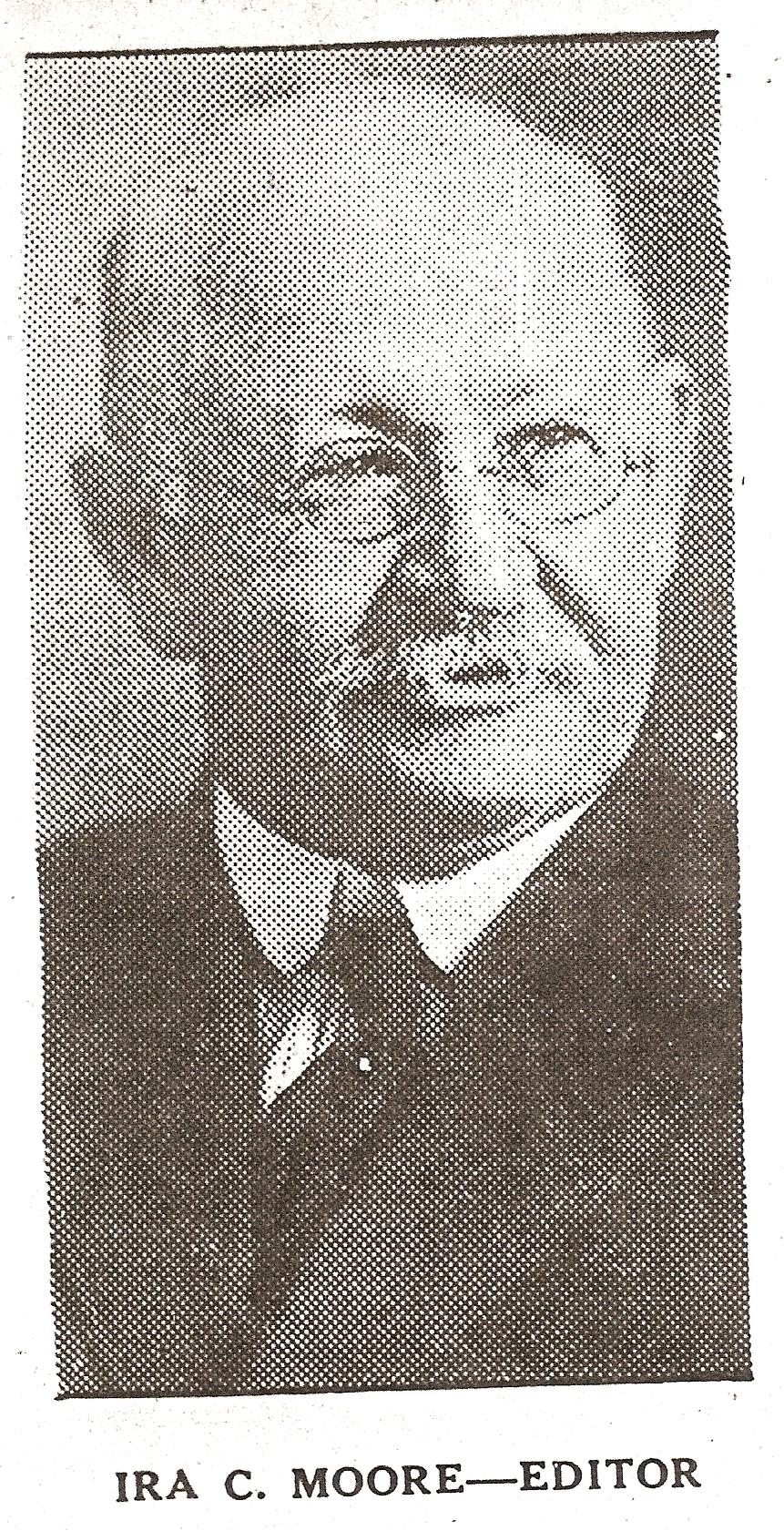
Moore continued his argument in his next editorial. After a long harangue against Roman Catholicism, Moore asked, "Should Christians so work and vote as to endanger their religious liberties? Should they so vote and use their influence as to increase their own and others’ obstacles and difficulties in living the Christian life? Should they encourage the supremacy of that religio-political system, that true to her past history, would if she could, put every obstacle and discouragement in the way of people becoming Christians and worshiping according to the New Testament?" (Ira Moore, Obstacles, 4). For Moore, the practice of the Golden Rule and the learning from Lot “who pitched his tent toward Sodom,” made it necessary for Christians to vote against Smith and “smooth the path for others.”
In similar vein, Fred Rowe explained why the vote in 1928 was critical. “Perhaps other churches would be just as partial and dictatorial, but the Catholic Church is the only organization that openly admits their desire to unite state and church.” (Rowe, Catholic, 3). Rowe saw the vote as a means to protect threatened civil liberties. In the same issue of the Leader, Rowe was asked his advice regarding women voting. He answered, "We are not passing out orders or sitting in judgement, but in our humble opinion we think that if there was ever a time that Christian women should vote this is the year. When we recall the fact that Catholic nuns are registering in groups of as many as fifty, it plainly indicates that they intend to marshal all their forces at this election, and our American women should vote this year if they never vote again." (Rowe, Women, 6).
Thad Hutson defended his preaching when accused of “preaching politics.” (Hutson, 8). Hutson said this was an old accusation. “Meddling in politics” was the cry of slave owners against the abolitionists; the cry of the polygamists against civil law regulating marriage. Hutson, who defended prohibition and opposed its repeal, was glad to be classed with such individuals. To those who told him to “preach the gospel” and leave politics alone, Hutson replied, "The Holy Spirit was to convince the world of sin, of righteousness and of judgement. It was the mission of the Spirit to convince the world of sin. How could he, if he never mentioned the subject - nor pointed out the sin? It was the sins of the world that the Holy Spirit tackled. I do not think any preacher is better than he. To preach politics in a partisan way, and as a partisan, would be prejudicial, selfish and harmful. But when any issue is indorsed by the very best people of all parties, if that issue affects the moral, religious, or the educational good of our people, let the truth be known." (Ibid.).
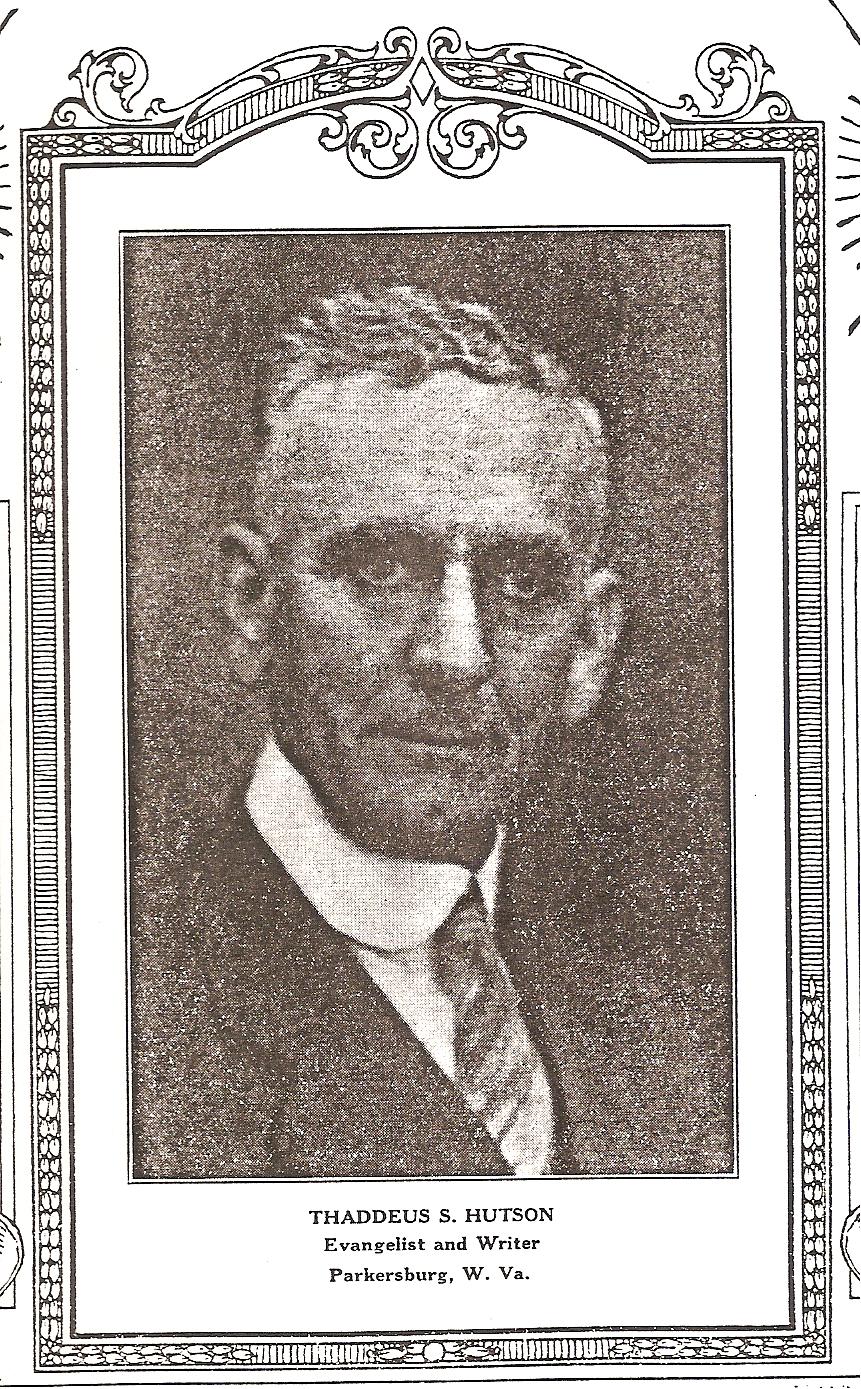
The repeal of prohibition and the soul-searching that accompanied that event, prompted a re-examination of the Christian’s relationship to government and especially the right to vote. When the actual votes on prohibition were reported, Fred Rowe published them in the Christian Leader. (Rowe, Stay at Home, 10). The only states that rejected the repeal were North and South Carolina. Rowe pointed out that both Carolinas had only a small number of Restoration churches. (Rowe, Happening, 6). Could the stance of those who followed Lipscomb have been a factor in the poor turn out to vote when Prohibition was repealed?
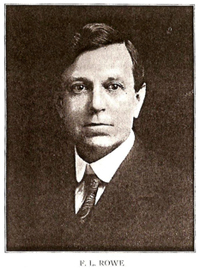
Rowe made these observations regarding the voting on prohibition. "It will be noticed that had the stay-at-homes come to the polls there would have been over 30 states on the dry side. There were only six states that were wet above the stay-at-homes. This vote, or failure to vote, will give our church people something to think about. Personally the scripture comes to me 'He that knoweth to do good and doeth it not, to him it is sin'." (Rowe, Stay at Home, 10).
In conclusion to this section of the study, a few observations are in order. Sectionalism is evident in the discussion as Northern Christians had taken a different view of government than isolationists in the South. While Lipscomb wielded a great influence on the issue below the Mason-Dixon line, his view on this subject had been lost north of the Ohio river, if it had ever had been accepted there. Flavil Hall, a “Nashville School” man, was at the forefront of those defending Lipscomb’s position while those rejecting Lipscomb’s position are nearly all from the North. The lone exception to this pattern was C. D. Moore.
Another interesting observation is the silence of certain individuals on the subject. Not one article was written by T. Q. Martin on the issue. Had his years of living in the North led him to silently discard this aspect of Lipscomb’s teaching?
Kingdom consciousness as related to civil government revealed that Thad Hutson, Ira Moore, and Fred Rowe were solidly in the ranks of a view which permitted involvement in human governments. Flavil Hall remained loyal to his teachers David Lipscomb and James A. Harding. J. W. Shepherd did not write on civil government per se, but as will be seen in the investigation on pacifism, the Lipscomb view of government is the underlying support for his rationale.
Works Cited
Errett, Isaac. "What the Disciples Believe and Practice" Christian Standard 14 (Sept. 18. 1880):300.
Hall, Flavil J. "Field Notes and Helpful Thoughts" Christian Leader 30 (Apr. 25, 1916):6.
_________. "Field Notes and Helpful Thoughts" Christian Leader 31 (Nov. 27, 1917):6.
_________. "Soulful, Hopeful and Helpful Thoughts, Bewitched" Christian Leader 41 (Nov. 8, 1927):5.
Hutson, Thad. "Considerations" Christian Leader 44 (Feb. 11, 1930):8.
Lipscomb, David. Civil Government. It's Origin, Mission, and Destiny, and the Christian's Relation to it. Nashville: McQuiddy Printing, 1913.
Moore, C. D. "Sword Swipes, Our King and Their King. Our Sword and Caesar's Sword" Christian Leader 39 (Sept. 22, 1925):3.
Moore, Ira C. "Should Christians Use Their Influence to Prevent Evil?" Christian Leader 42 (Oct. 2, 1928):4.
__________. "Should Christians Use Their Influence to Put Obstacles in the Way of Christian Living and Progress?" Christian Leader 42 (Oct. 9, 1928):4.
Rowe, Fred. "Catholic Loyalty and Control" Christian Leader 42 (Oct. 30, 1928):3.
_________. "Shall the Women Vote?" Christian Leader 42 (Oct. 30, 1928):6.
_________. "Things That are Happening" Christian Leader 47 (Nov. 14, 1933):6.
_________. "The Stay at Home Vote" Christian Leader 48 (Jan. 23, 1934):10.
Rowe, J. F. "May Christians Vote and Hold Office? no. 1" American Christian Review (Oct. 5, 1880):316.
West, Earl I. "The Post-Civil War Era: The Shaping of a Pattern." (Unpublished Manuscript, Harding Graduate School of Religion library, n. d.).
* No election in the period received more attention from the Leader publisher and editors than the 1928 Presidential race. It is difficult to assess whether this opposition to Smith was due more for his "wet" position or his Roman Catholicism.
